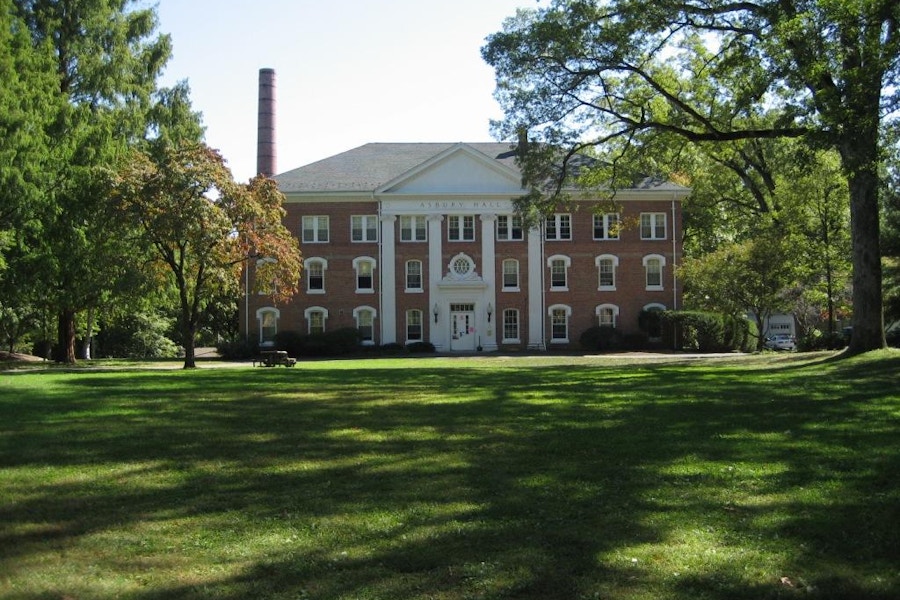I first met Tom Oden when I entered Drew University as a graduate student. The year was 1987. I walked into the Great Hall, a beautiful, imposing structure in the Oxford style. Sheets of paper had been posted on the walls of the Hall, each headed by the name of a particular professor. New graduate students were anxiously and eagerly perusing each posting, wondering which professor would be guiding their studies in the years to come. I came to a sheet labeled “Thomas C. Oden,” glanced down a list of six or seven students, and there was my name.
I remember my first appointment with Tom as my academic advisor. I tracked down his office in Wesley Hall, knocked on the door, and heard a voice call, “Come on in.” A narrow hallway faced me, lined with shelves of books, an entrance way I would come to know well over the next four years. I peered down the hallway but couldn’t see Tom. His desk was at the end of the hallway, tucked around the corner. When I turned the bend, there was Tom, sitting at his desk. He was surrounded by stacks of books, scattered sheets of paper, and his omnipresent index cards, each covered with scribblings. I don’t think he ever threw one away.
He smiled as he saw me. “Chris, how ya doing?” We chatted for a while, mostly small-talk, and then discussed my upcoming seminars for the fall. If memory serves me correctly, at least one class would be with Tom. I think it was on John Wesley, for Oden was a well-known Wesley scholar. If I was to study with Tom I would be studying Wesley and, I soon learned, the church fathers.
What I remember most about this first meeting, though, is simply Tom’s kindness. He was genuinely interested in my life. He wanted to know about my family. How long had I been married? What was my wife’s name? Did we have children? Where was I living? Other questions followed. What was my history as a student and as a Christian? What were some of my favorite books? What were my interests for my studies and for the future?
Tom surprised me by asking if I would like to be his teaching assistant. I think I surprised him when I declined his kind invitation. I explained that I wanted to get my feet wet as a Ph.D. student before I made other commitments. That seemed fine with him; little did we know that we would be working together for the next 29 years.
I have shared with you my grief over Tom’s death. And that is only right. I long to hear one more “How ya doing?” But such is not to be. What I can do, though, is to remember. In the initial stages of grief, the remembering is hard, fearful, tiring, even remorseful. “If only I had called more often. If only I had known, he would be leaving so soon. If only …”
In time, though, the fierce, demanding, ever-present grief begins to subside. Such is happening to me. And a different kind of grief is settling in. Should I even call it grief? It is a remembering, a recalling, a bringing to mind, a welcoming into the present a life well-lived.
As I do so a smile will appear, a chuckle quietly emerges, and yes, occasionally a tightening of my throat and a dampening of my eyes. For this is a remembering housed in thankfulness, a peaceful, restful, joyful remembrance. I find I am inviting Tom back into my life in a different way from when he was tangibly with me at Drew or in Oklahoma City. “How ya doing, Tom?” I ask. And from a place nearer than I might ever think possible, I sense him saying, “I’m doing just fine.”


